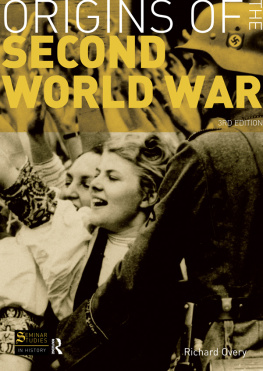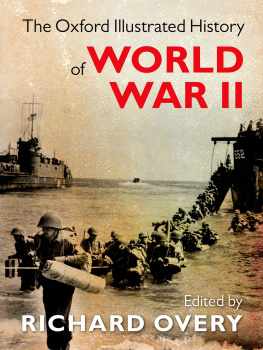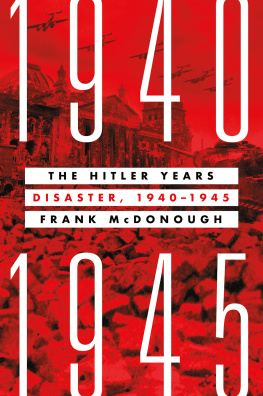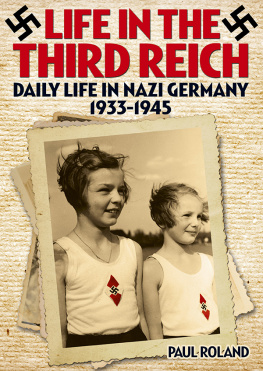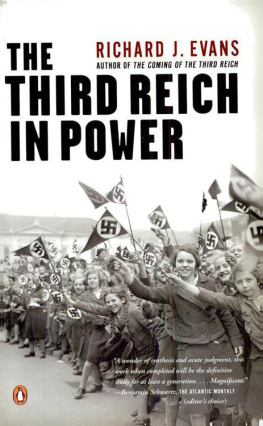Richard Overy is Professor of History at the University of Exeter. The author of more than twenty books on the dictators, airpower and World War II, he is one of Britains leading historians of the twentieth century. His books include The Air War 1939-1945, Why the Allies Won, Russias War and more recently The Dictators, which won the 2005 Wolfson Prize for history. He is a Fellow of the British Academy. His most recent book was 1939: Countdown to War, and he is currently preparing a book on bombing in World War II.
THE THIRD REICH
A Chronicle
RICHARD OVERY


New York London
2010 by Richard Overy
All rights reserved. No part of this book may be reproduced in any form or by any electronic or mechanical means, including information storage and retrieval systems, without permission in writing from the publisher, except by reviewers, who may quote brief passages in a review. Scanning, uploading, and electronic distribution of this book or the facilitation of the same without the permission of the publisher is prohibited.
Please purchase only authorized electronic editions, and do not participate in or encourage electronic piracy of copyrighted materials. Your support of the authors rights is appreciated.
Any member of educational institutions wishing to photocopy part or all of the work for classroom use or anthology should send inquires to Permissions c/o Quercus Publishing Inc., 31 West 57th Street, 6th Floor, New York, NY 10019, or to .
ISBN 978-1-62365-218-0
Distributed in the United States and Canada by Random House Publisher Services
c/o Random House, 1745 Broadway
New York, NY 10019
www.quercus.com
CONTENTS
CHAPTER 1
RISE TO POWER 19231933
CHAPTER 2
BUILDING THE THIRD REICH 19331934
CHAPTER 3
THE FHRER STATE 19351936
CHAPTER 4
BUILDING THE NEW ORDER 19371939
CHAPTER 5
THE YEARS OF VICTORY 19401941
CHAPTER 6
GENOCIDE AND DEFEATS 19421943
CHAPTER 7
THE RUINED REICH 19441945
AFTERMATH
LEGACY OF THE THIRD REICH
MAPS
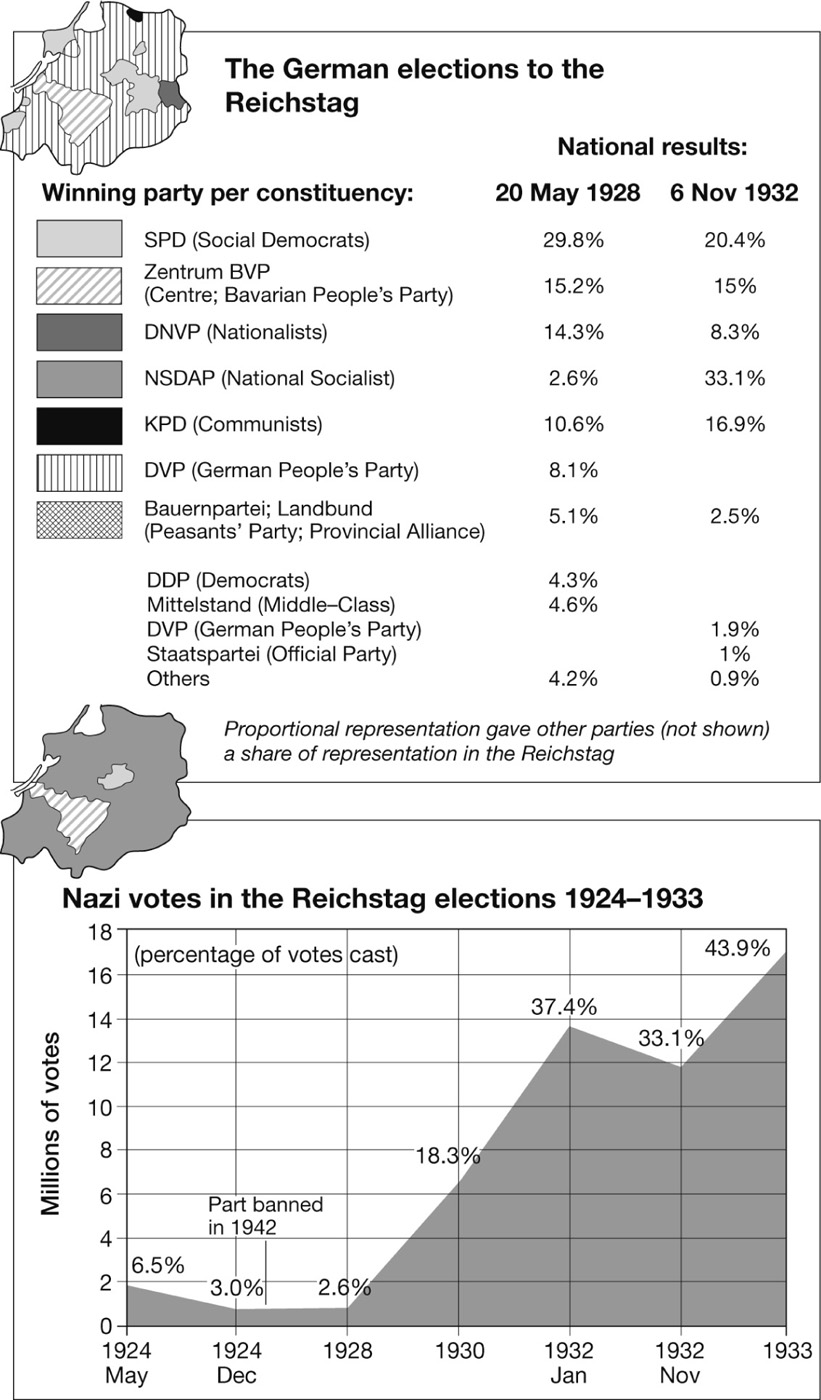

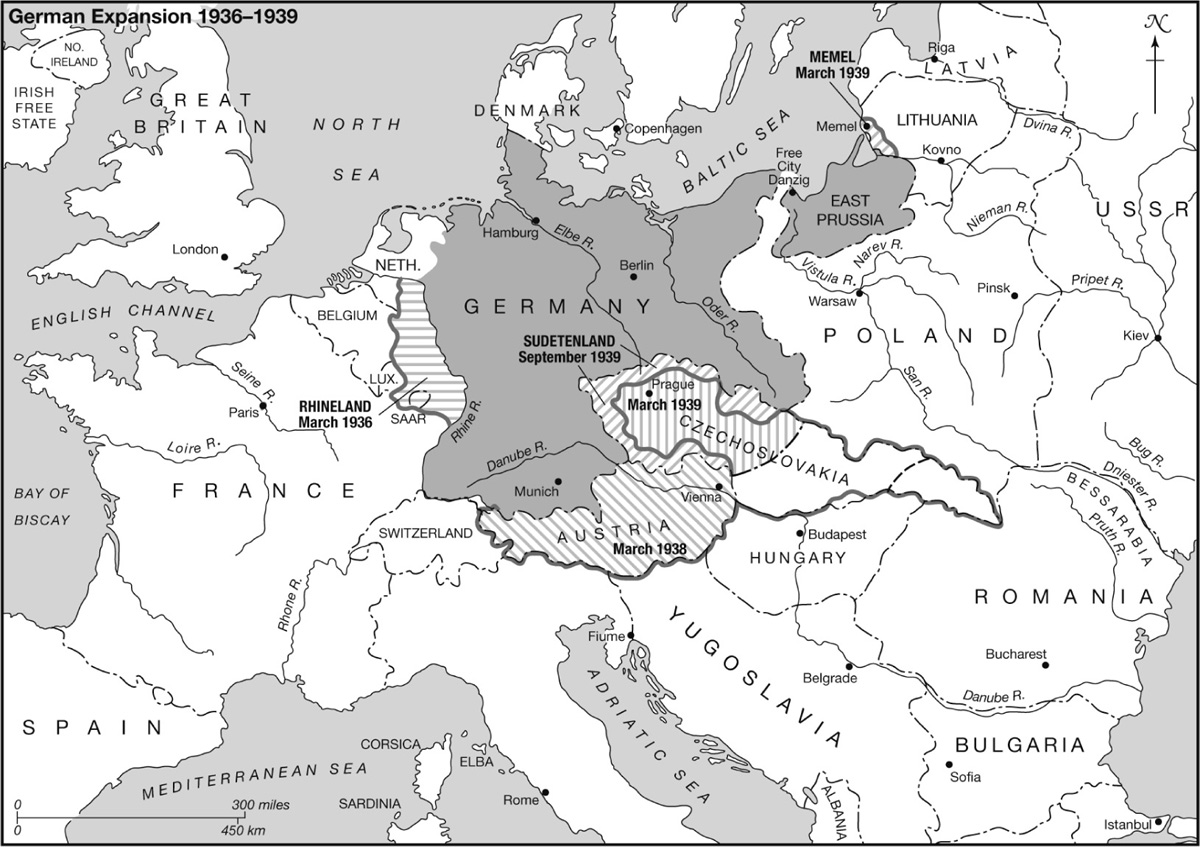

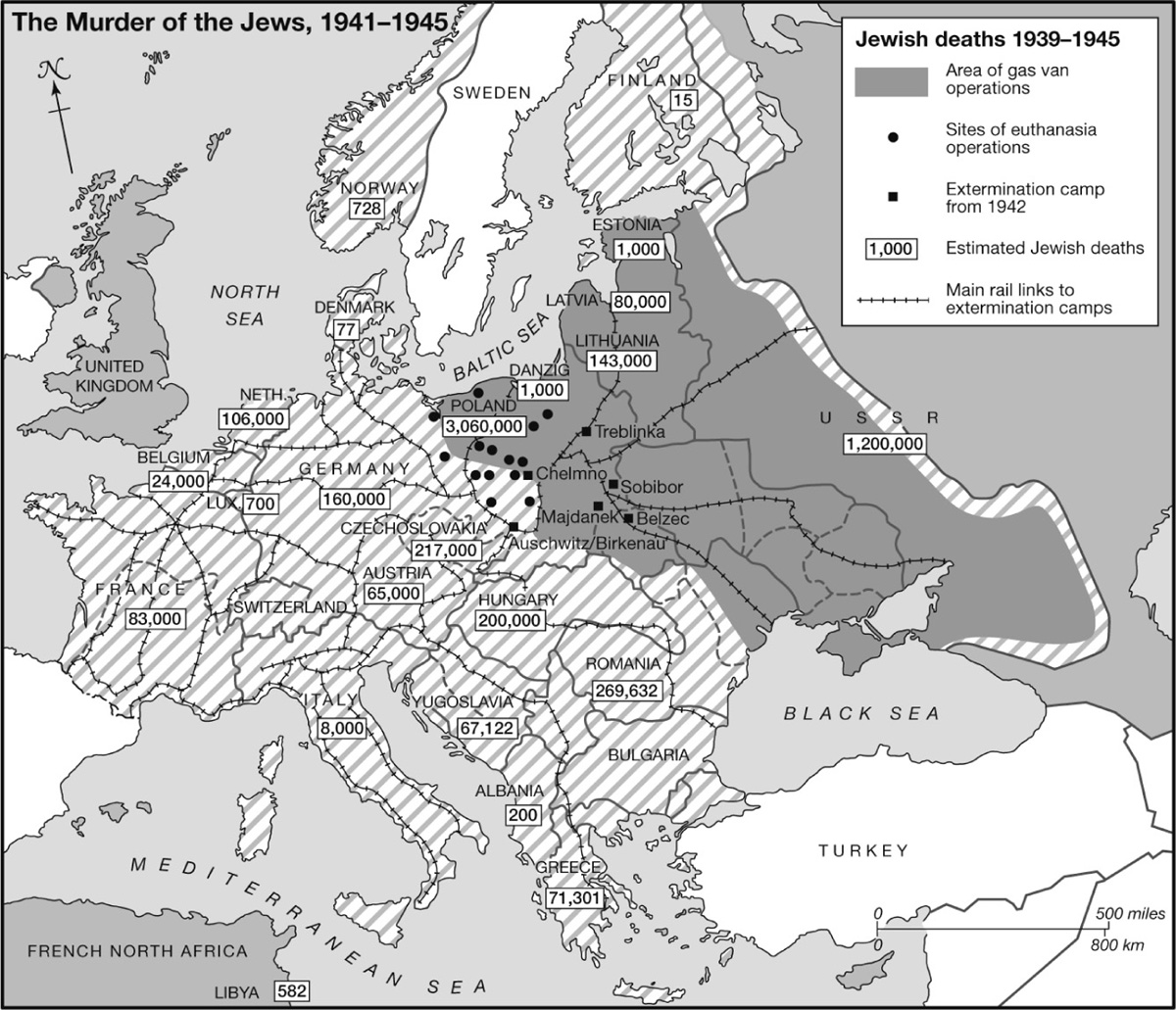
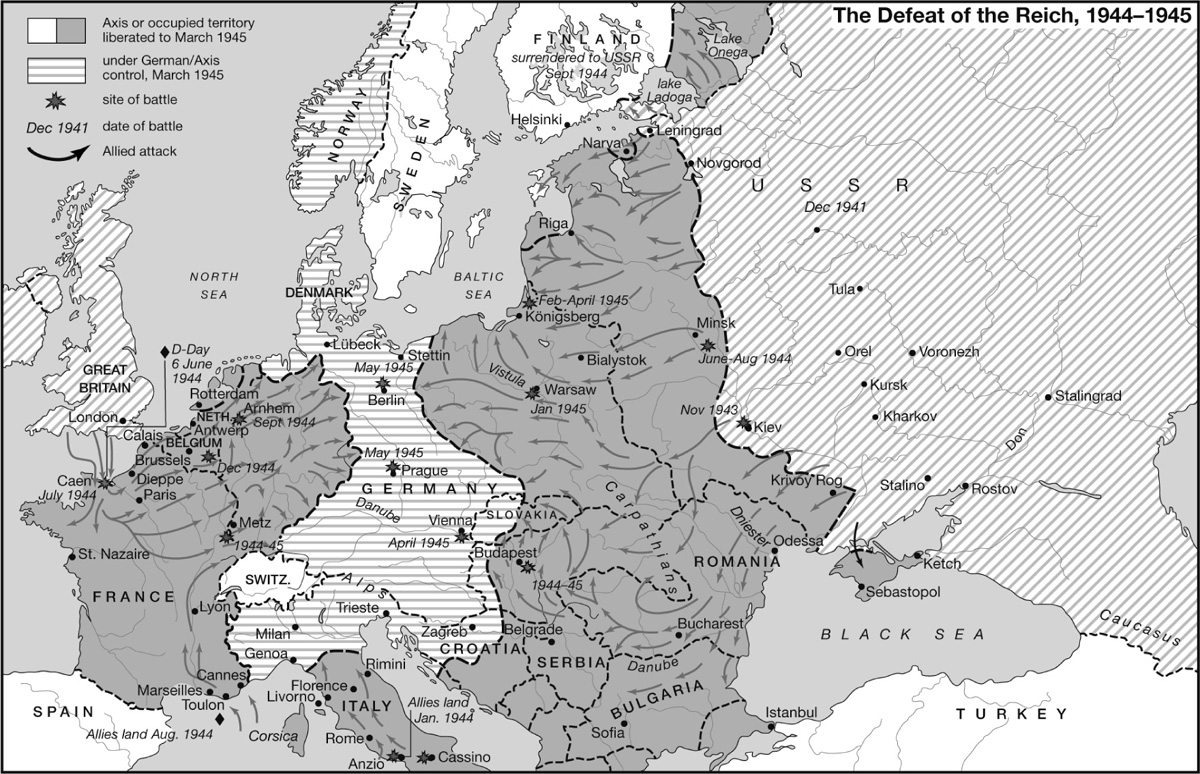
INTRODUCTION
No period of recent history has been so thoroughly explored as the Third Reich. Although the dictatorship lasted only a dozen years out of the past century of German history, the cataclysmic war that Hitler unleashed, and the genocide of Europes Jews, had repercussions far beyond Germanys borders and still reverberates in the history of today.
So intense and dramatic were those twelve years of German history that they have forced anyone who looks at them to ask some big questions. First, how did a nation with a reputation for civilized behavior and a long and glittering cultural heritage come to spawn a violent dictatorship capable of committing remarkable barbarities? This is a question which seems all the more puzzling with the passage of time, since post-war Germany has seen no real residue from the militarism and racism that characterized the Third Reich. In the sixty-five years since its collapse Germans have been Europes virtuous citizens. Second, why was Hitler allowed to come to power when his party had only just over one-third of the electorate behind it? Of course, there have been plenty of minority parties running the government in the last century. But given the menace that Hitler represented it is necessary to explain why the two-thirds of Germans who did not vote for Hitler could not find a way of blocking his rise to power. Moreover, having failed, millions of them then threw in their lot with a regime that showed from the start its willingness to behave in utterly lawless ways.
Finally there is the complex question of why Adolf Hitler, an apparent nonentity to many of those who met him in private (away from the rostrum and the baying crowds), was able to exert such an extraordinary grip on the German people, a grip that brought them to the edge of complete destruction without ever eroding entirely the bond that bound leader and led together. The fascination that he exerted exists still today in the endless quest to understand the real Hitler. The truth lies not entirely with Hitler, whose personality was bizarre and whose ambitions grew the more he believed that he was chosen by destiny, but with the people he led, many of whom wanted to believe and who accepted the cult of personality as an act of faith rather than a realistic assessment of the kind of man who led them. In this sense Hitler was, as he always claimed, the supreme representative of his people, not someone imposed on Germany as an alien presence. The leader cult has operated in other dictatorships too, in Maos China and Stalins Russia, with fatal consequences for those who refused to believe. But in the German case leader and led both colluded in the fiction of Hitler as the German Messiah; many people refused to confront the sheer irrationalism of this belief and as a result found themselves committing awful atrocities in the name of the Fhrer.
In trying to come to terms with these large questions it is important to bear in mind that a significant fraction of Germans were affected by the idealism of the National Socialist revolution and genuinely believed they were building a better world, a new utopia in which there would be no racial enemies, no social tensions, no alien cultural influences but instead a cozy social vision of happy families, healthy blond children and a pure race. The idea that Germanys national revival under Hitler was destined to make Germany the center of a revived European civilization now seems entirely wrong-headed, but there were idealistic Germans who hoped that for all the rough edges of the national revolution, a better world would result, not just for Germany but for the rest of Europe too. The image that recurs often in the propaganda of the Third Reich is the triumph of order over chaos, of decency and honesty over the malign values of other world views.
This vision of a new promised land is very hard to reconcile with the violence, discrimination and injustice widely exercised by the regime. You cant make an omelet without breaking eggs, Hermann Gring once remarked, but this was a slender excuse for the way the regime behaved to its alleged enemies and rivals, both inside Germany and in the wider world. The truth is that the regime and its supporters thrived not on a virtuous, if misplaced, idealism but on the worst aspects of human natureresentment, against other powers and more prosperous peoples; envy, of those states who possessed rich empires or adequate resources; fear, of imagined enemies of the German ideal; hatred, of those who refused to follow the faith and betrayed or challenged the utopian vision; and above all unbridled aggression, manifested in the beatings and tortures inflicted on political enemies in 1933 through to the savage murder of defeatists and deserters in 1945. It is small wonder that the history of the Third Reich focuses on war and genocide because that was its central legacy. The German virtues that Hitler lauded were realized as vices.
Next page


